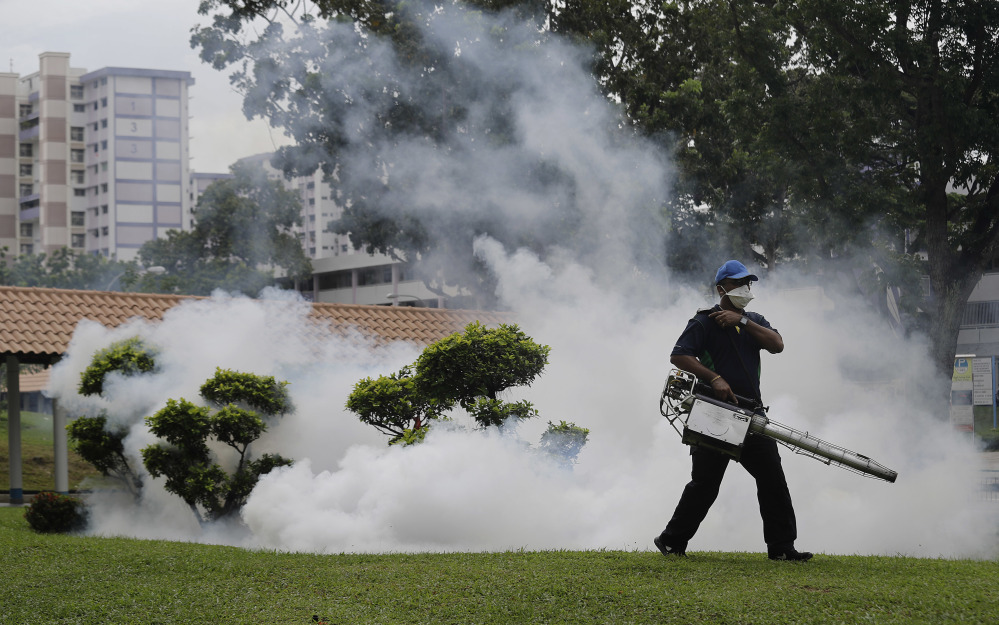LONDON — Scientists trying to predict the future path of Zika say that 2.6 billion people living in parts of Asia and Africa could be at risk of infection, based on a new analysis of travel, climate and mosquito patterns.
Among those countries are India, China, the Philippines, Indonesia, Nigeria, Vietnam, Pakistan and Bangladesh, according to the research.
Experts caution that the study could overestimate the number of people at risk because they don’t know whether Zika had already landed in some of these countries in the past and allowed people to develop immunity. More than two-thirds of people infected with Zika never get sick, and symptoms are mild for those who do, so surveillance systems may have missed cases.
Although Zika was identified in 1947, the virus wasn’t considered a major health threat until an outbreak in Brazil last year revealed that Zika can lead to severe birth defects when pregnant women are infected.
In February, the World Health Organization declared the spread of Zika a global emergency, and epidemics have been sparked in at least 70 countries. In the last few weeks, it has sickened more than 100 people in Singapore and started spreading in Florida. Zika is mostly spread by a specific species of tropical mosquito, but it can also be spread by sex and through blood transfusions.
Researchers hope their new study will help officials plan ahead to possibly avoid some of the worst effects of Zika.
“For countries with a finite amount of resources, this may help them use those resources as efficiently as possible,” said Dr. Kamran Khan, an infectious diseases physician at St. Michael’s Hospital in Toronto.
To figure out where Zika might gain a foothold, researchers examined patterns of people traveling from infected regions in the Americas to Africa and Asia and combined that with an assessment of local conditions, including mosquito populations. They used the spread of a related virus, dengue, as a model for Zika since the same mosquito species transmits both diseases. Dengue is not spread by sex, like Zika, but mosquitoes are responsible for the vast majority of Zika cases globally.
The study was published online Thursday in the journal, Lancet.
Some experts pointed out that the expected impact of Zika will depend largely on whether people have any previous exposure to the virus – and that is unknown. The virus in the Americas is an Asian strain that was responsible for an outbreak in French Polynesia and other Pacific Islands in 2013 and 2014.
Send questions/comments to the editors.



Success. Please wait for the page to reload. If the page does not reload within 5 seconds, please refresh the page.
Enter your email and password to access comments.
Hi, to comment on stories you must . This profile is in addition to your subscription and website login.
Already have a commenting profile? .
Invalid username/password.
Please check your email to confirm and complete your registration.
Only subscribers are eligible to post comments. Please subscribe or login first for digital access. Here’s why.
Use the form below to reset your password. When you've submitted your account email, we will send an email with a reset code.